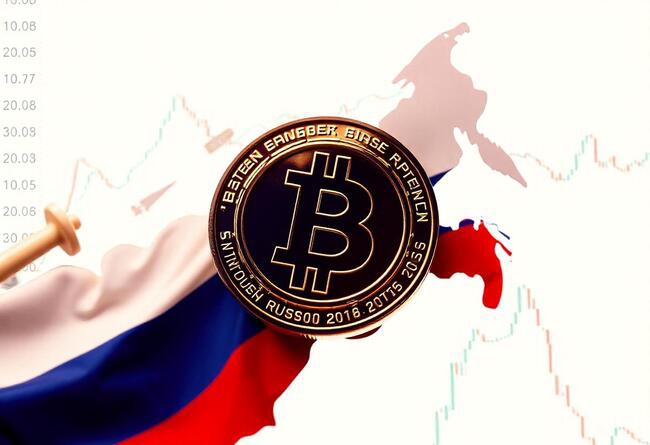Highlights:
- Russian Stock Exchange, SPVB has refuted earlier claims, speculating that crypto exchanges will soon roll out in the country.
- SPVB reiterated its commitment to product and service deliveries in the money and stock markets.
- Some regions in Russia are planning to launch crypto exchanges despite the initial claims debunking.
Russian Stock Exchange, Saint Petersburg Currency Exchange (SPVB) has refuted claims about establishing a State-backed crypto exchange. The latest discovery came as a shock, considering that news about two trading platforms and native stablecoins development was making rounds a few days ago.
Earlier Trading Platforms and Stablecoins Development Claims
Last week, news broke out that Russia is working toward establishing two crypto exchanges and native stablecoins to boost the country’s involvement in global crypto transactions. Notably, the reports disclosed that one of the exchanges will leverage the St. Petersburg Currency Exchange (SPCE) database for foreign economic activity. On the other hand, the second proposed trading platform has no specific modalities. However, chances abound it could adopt an experimental legal regime.
For stablecoins, the source revealed that it would cut across the Chinese Yuan and the BRICS currency systems. For context, BRICS is an acronym representing five nations – Brazil, Russia, India, China, and South Africa. However, new countries joined the payment system. They include Egypt, Ethiopia, Iran, and the United Arab Emirates (UAE). Hence, it underscores an umbrella payment system spanning continents based on earlier reports.
Russian Stock Exchange Refutes Exchanges and Stablecoins Development Claims
Debunking earlier assertions, the Saint Petersburg Currency Exchange has released an official statement clarifying its market standing. SPVB termed the earlier claims false, reiterating that the stock exchange does not aim to venture into crypto-related services.
The press release on SPVB’s official website reads:
“The reports that appeared in several media outlets that the Saint Petersburg Currency Exchange plans to become one of the platforms for trading crypto assets are not true. The approved development strategy is focused on developing its products and services in the money and stock markets, which does not involve providing any services related to cryptocurrencies.”
A major Russian stock exchange has denied reports that it is on the verge of launching a state-run crypto trading platform.
Earlier this week, unnamed insiders reportedly told major Russian news outlets that the Saint Petersburg and Moscow exchanges were ready to roll out crypto… pic.twitter.com/QFbfxFtAMc
— XXKK (@XXKK_OFFICIAL) August 26, 2024
What Could Have Fueled the Initial Claims?
While the SPVB might have publicly debunked the earlier assertions, the news did not emerge out of nowhere. Arguably, top Russian officials have been engaging in discussions revolving around the possible establishment of crypto exchanges in the country. Interestingly, the deliberations started emerging as Russia sought to salvage its plummeting economy.
The efforts to revive Russia’s financial outlook via cryptocurrencies started bearing results when the country passed a new law to legalize Bitcoin mining and cryptocurrencies’ adoption for international trade. Aside from the new legislation, SPVB had previously advertised an opening for a new head of anti-money laundering operations. Interestingly, the job opening highlighted that it would only consider applicants with crypto skills.
Considering the instances highlighted above, it becomes relatively safe to say that the initial claims emerged from credible sources. However, with the recent disclaimer, market participants can only hope for the best in the future.
Meanwhile, on a brighter note, some regions in Russia are working toward establishing their trading platforms. Notably, reports have emerged that a crypto exchange will soon roll out in the Tatarstan Republic. The trading platform will be named after its region of emergence. It will enable transactions among local Russian inhabitants.





